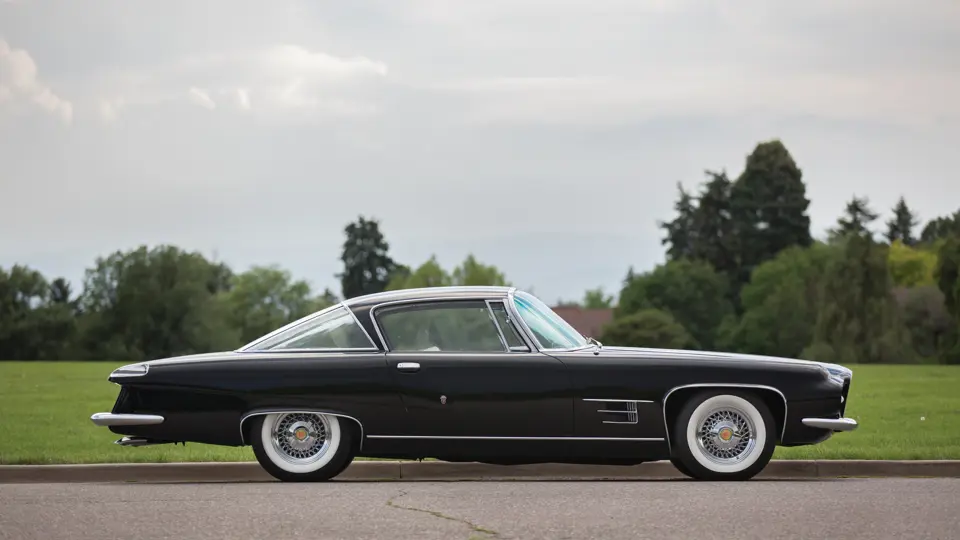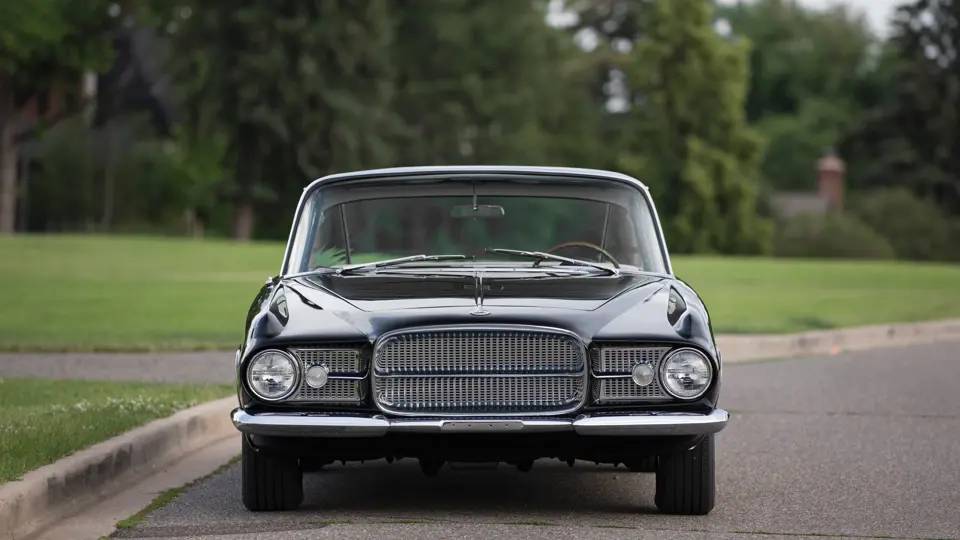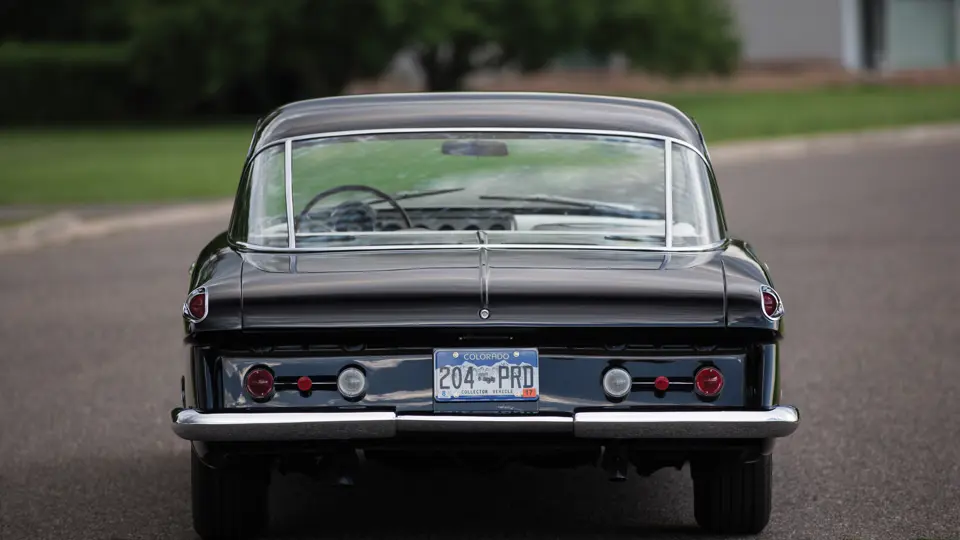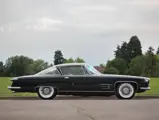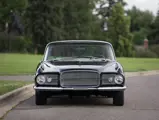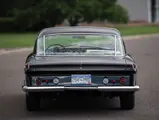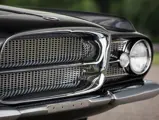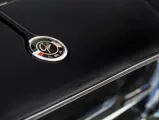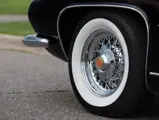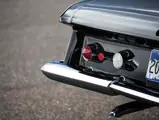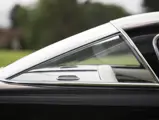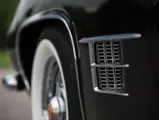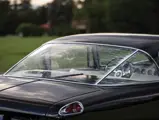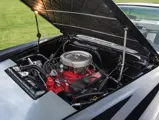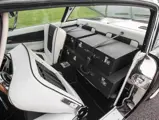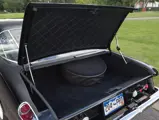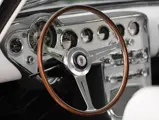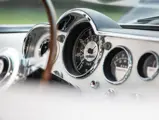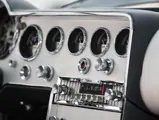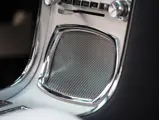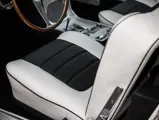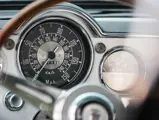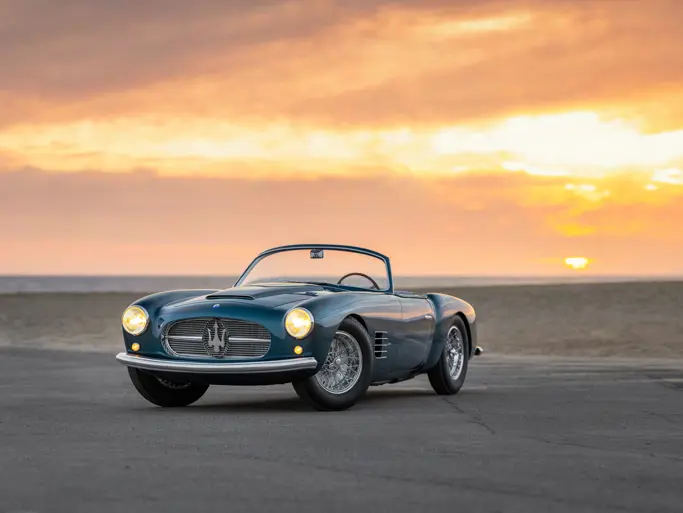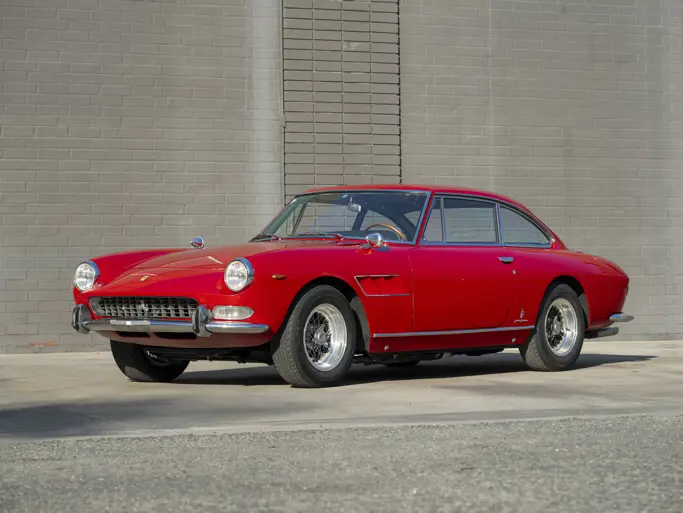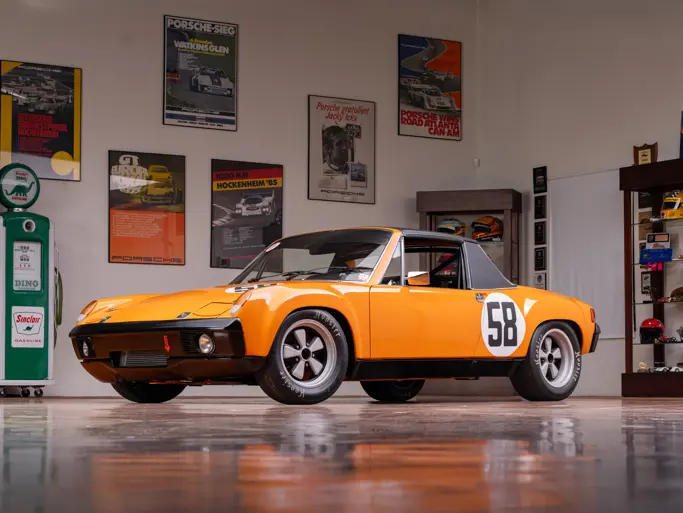335 bhp, 383 cu. in. OHV Chrysler “Wedge” V-8 engine with a Carter four-barrel carburetor, three-speed Torqueflite automatic transmission, independent front suspension with torsion bar and tubular shock absorbers, solid rear axle with semi-elliptic leaf springs and tubular shock absorbers, and front Girling disc brakes with rear Chrysler hydraulic drum brakes. Wheelbase: 115 in.
No one can deny that Eugene Casaroll fought the good fight. The Detroit businessman had taken a Chrysler concept car and developed it into a limited-production convertible, employing such features as reliable MoPar mechanicals and svelte hand-built Ghia coachwork. Not only had the car been successfully produced in only three short years since its 1956 introduction, it had also become the favored automobile of Hollywood royalty. Frank Sinatra, Lucille Ball, and Peter Lawford all had Dual-Ghias in their driveways.
Nonetheless, by 1958, Casaroll was ailing, and business for the shipping line, which was his bread and butter, had slowed. He was not in the market to continue his success, but Vice President of Dual Motors Paul Farago was, and he and the Ghia designers drew up a second-generation model, a “two-plus-two” fastback coupe with lines refined by Chrysler’s Virgil Exner. Ghia would hand-build not only the body but virtually the entire car, including the chassis, which was based on 1960 Chrysler suspension, and a 383-cubic inch “Wedge” V-8. As the involvement of Casaroll’s Dual Motors shrunk, the new model was simply christened the Ghia L 6.4, or “6.4 Liter,” which is the metric displacement of its engine.
The L 6.4, priced at an astonishing $13,500, nonetheless brought back Sinatra and Ball as return customers, and no one could deny that the buyer didn’t get his or her money’s worth, as the Ghia was among the finest-finished automobiles in the world. It wasn’t the price that was the problem; the problem was the cost of production and the complications that came with building a car in Italy and selling it in the United States. In the end, the L6.4 was doomed to a brief yet glorious existence, with only 26 built and sold.
The car offered here, chassis number 0309, was the ninth L6.4 built, and according to Dual-Ghia historian Dr. Paul Sable, it is believed to have been originally sold in Switzerland. The current owner imported the Ghia in 2005, and then the car underwent a restoration that, as he puts it, “included virtually every component and assembly of the vehicle, with all items being cleaned, repaired, restored, or replaced to factory-authentic condition and appearance, as best we could determine from the available literature.”
The body was finished in deep black, with an interior in black and white leather (changed from the original olive green), as shown in the original factory brochure (a copy of which is included with the vehicle). At one point, it was fitted with incorrect taillights, but they were replaced with correct taillights that had been reproduced from an original pair. An original-style fitted luggage set was reproduced to match the interior, and period-style wire wheels replaced the after-market wire wheels that were on the car when acquired. Altogether, the car’s appearance is fresh and stunning.
The Ghia has been an award winner at several prominent events, receiving Best in Class and being selected as a finalist for Best in Show at the 2014 Concorso Italiano. Veloce Today, the online periodical catering to Italian and French auto enthusiasts, described it as being their favorite car of the concorso, and it was chosen by Frank Martus, the technical director of Motor Trend magazine, as his “Pick of the Show.” It was also Best in Class at the 2014 Concours on the Avenue in Carmel, which is a further testament to the quality of its superb restoration.
This beautifully finished and presented example marks a rare opportunity to acquire the most seldom-seen and exclusive of all “Dual” Ghia variants: the L6.4.
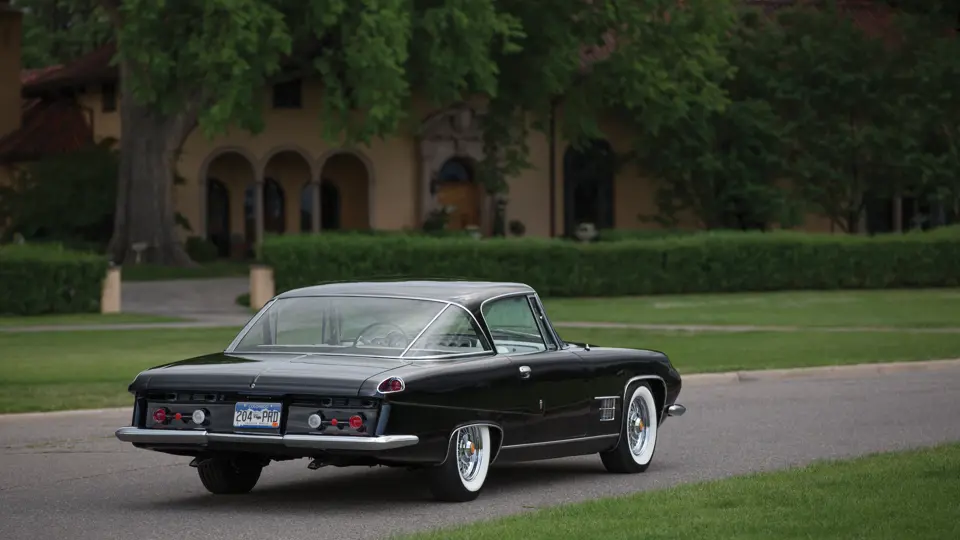



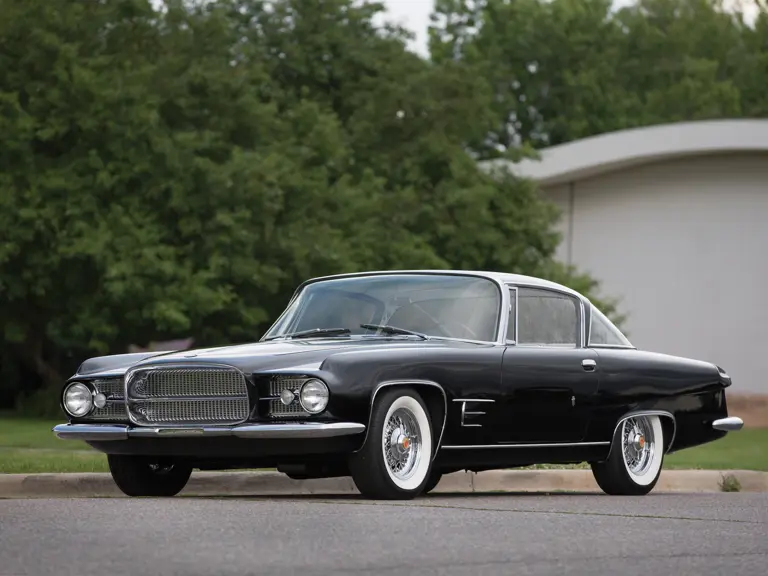
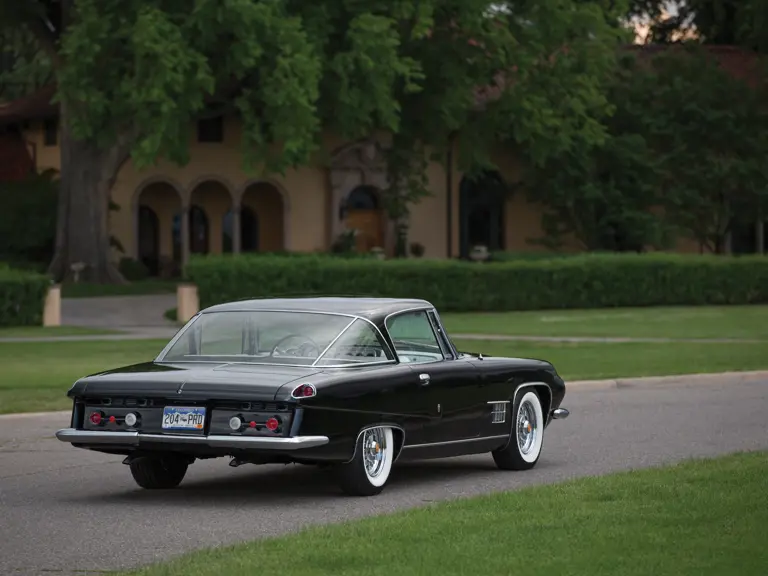
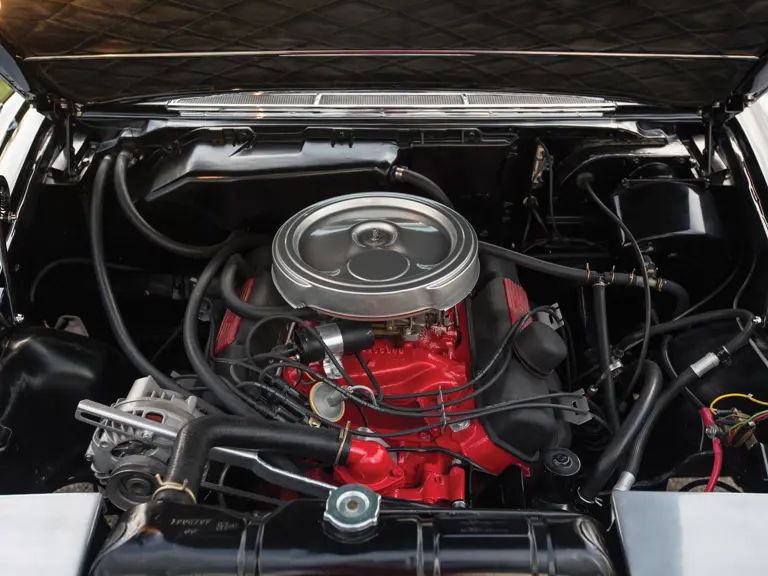
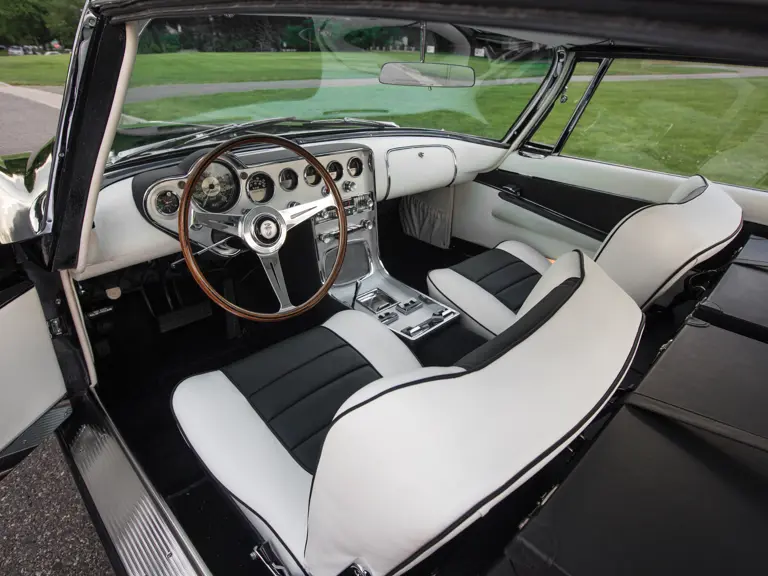
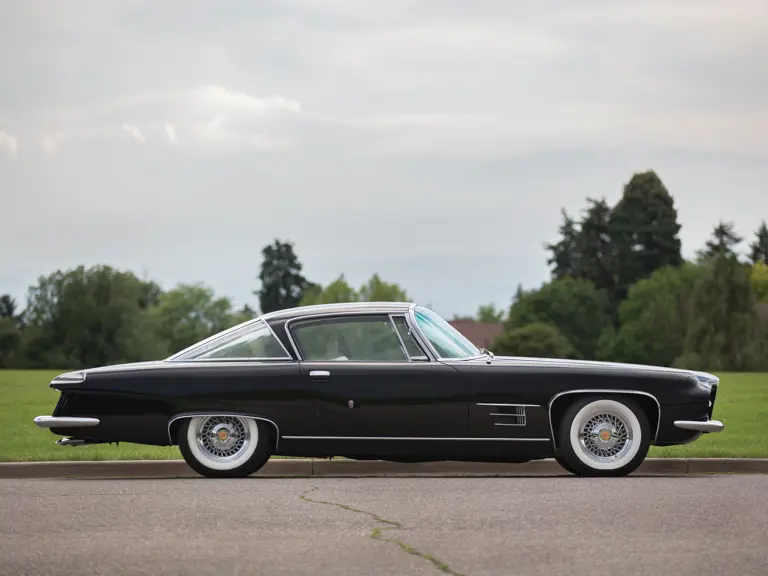
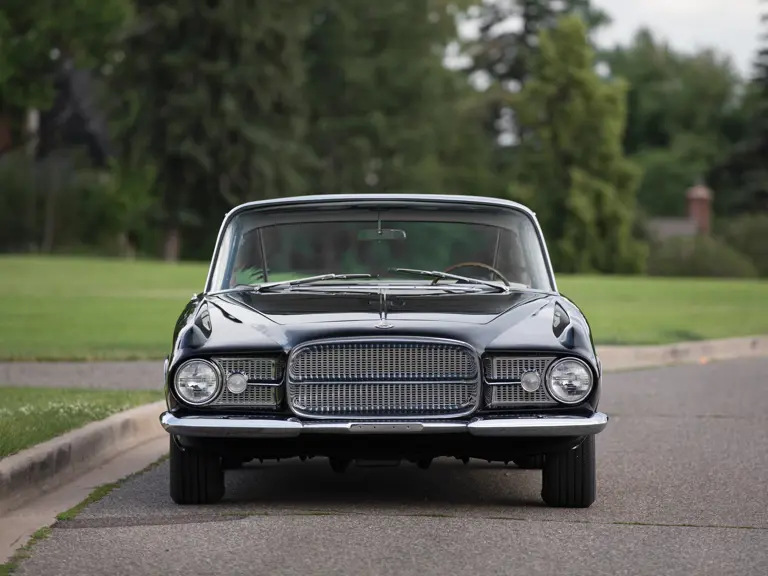
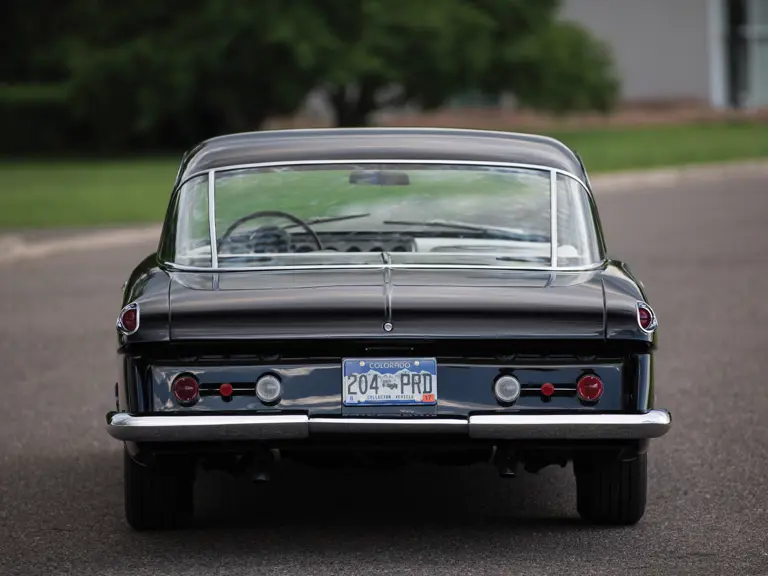
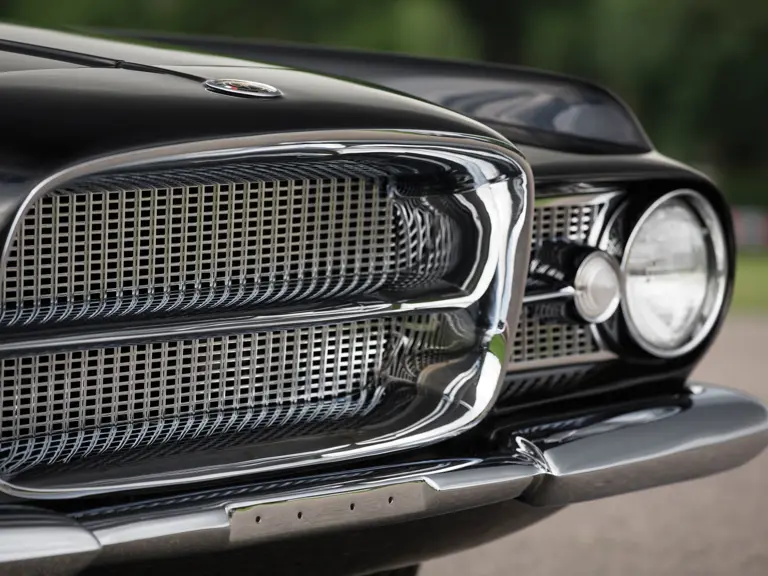
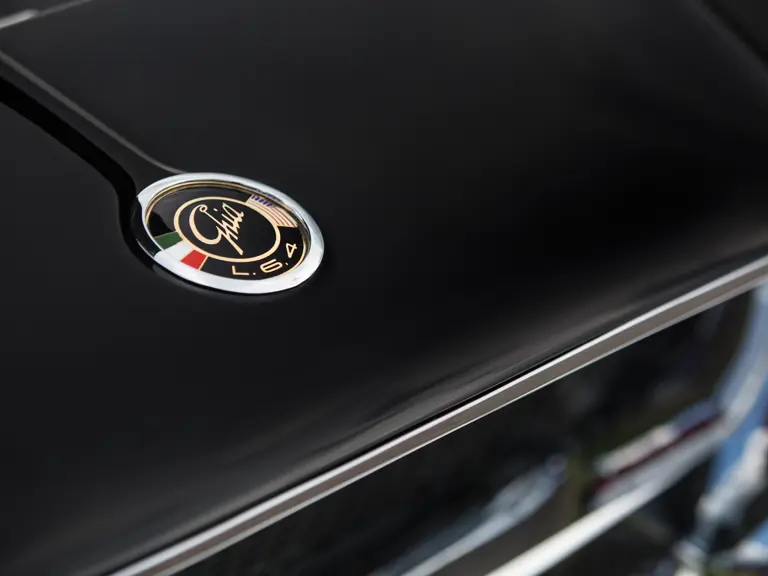
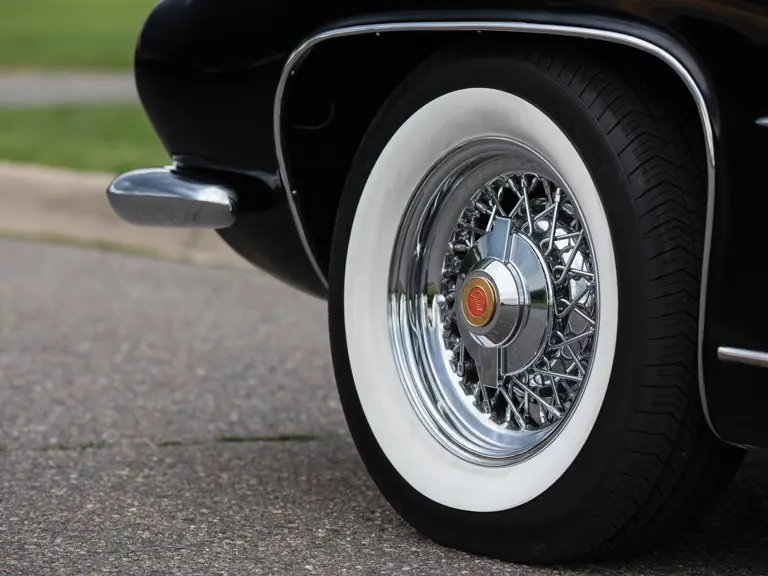
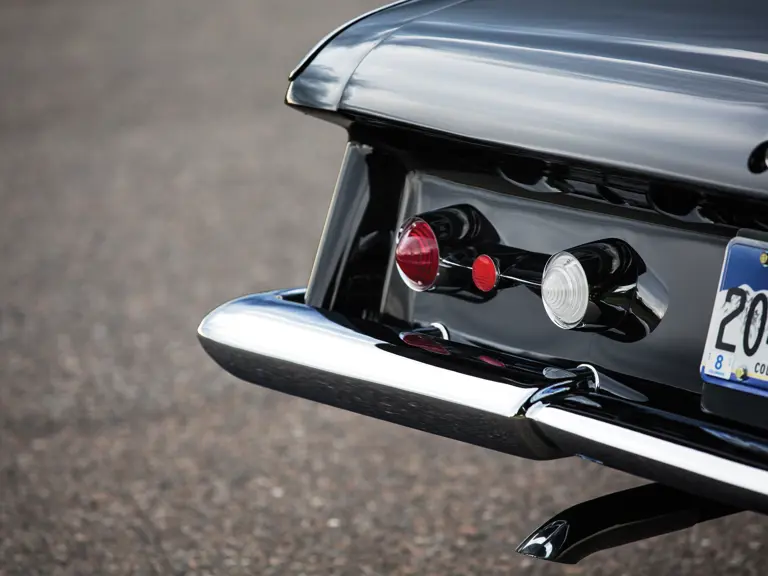
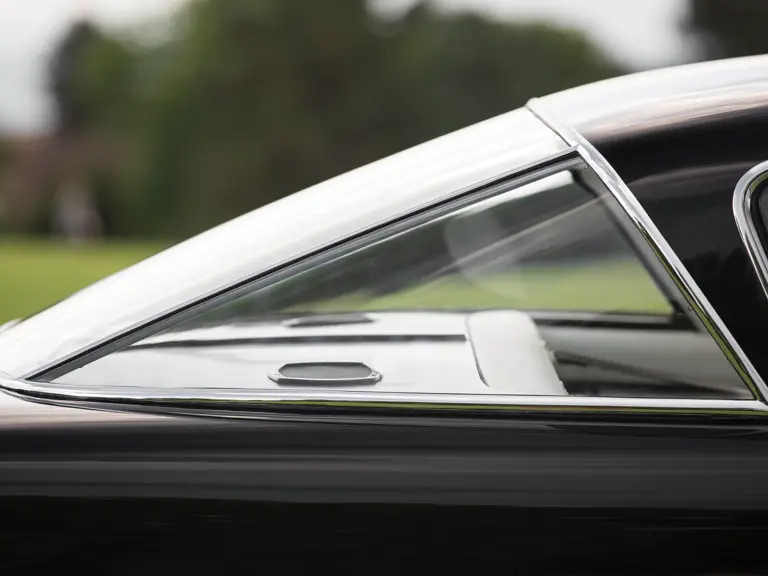
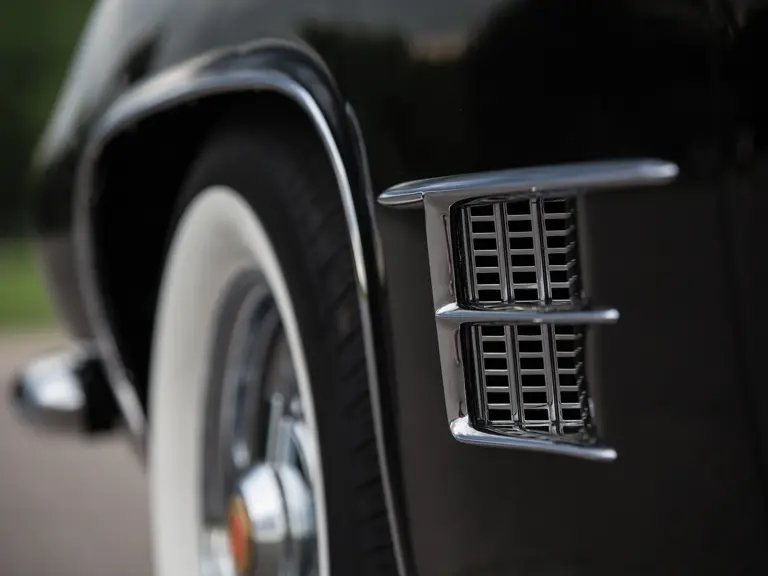
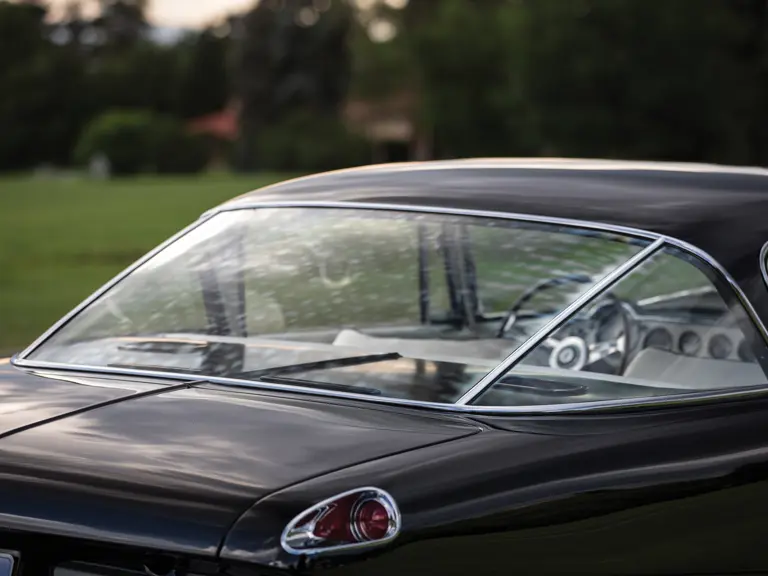
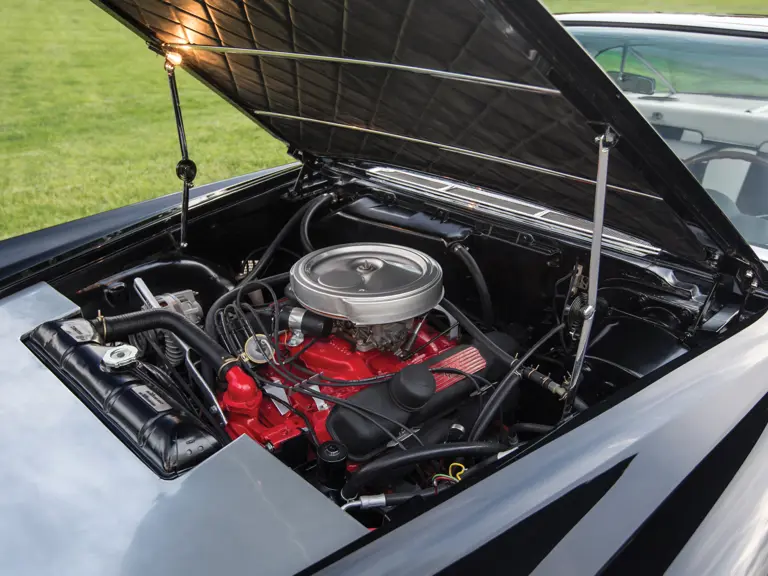
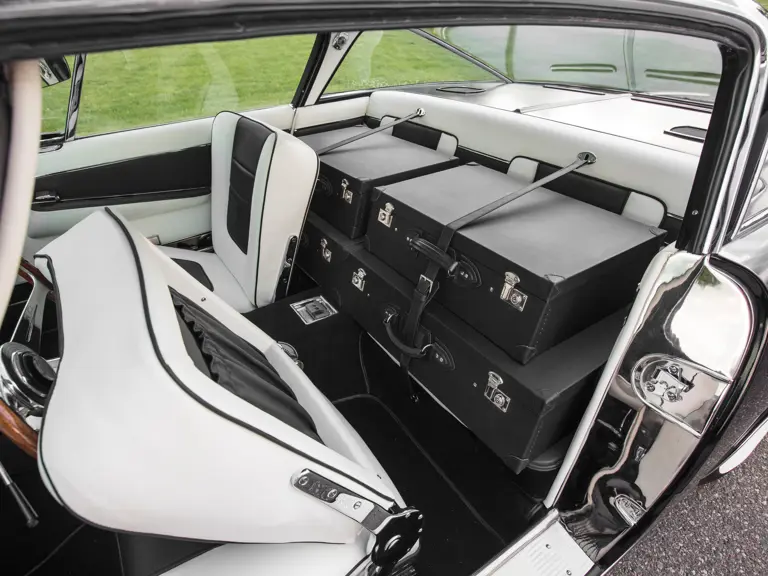
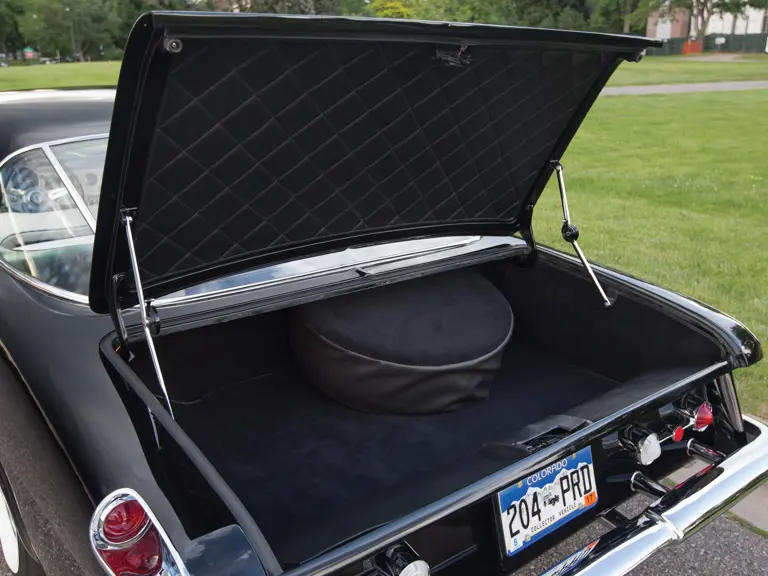
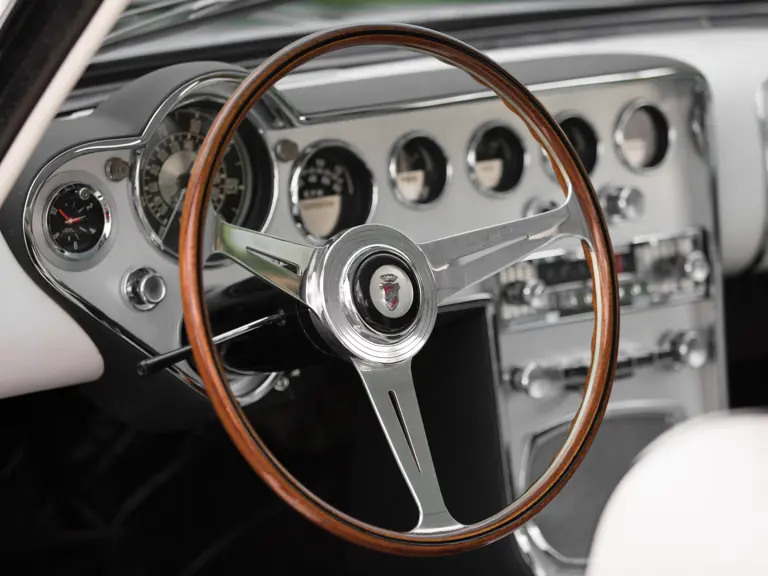
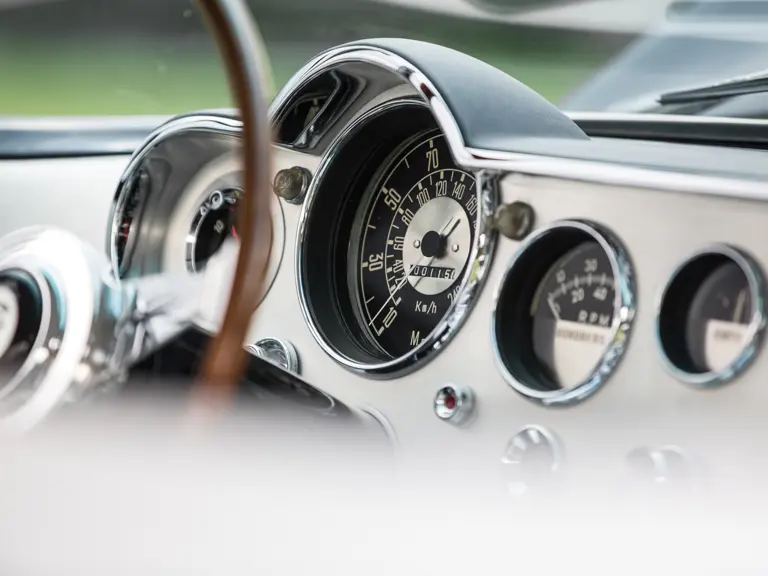
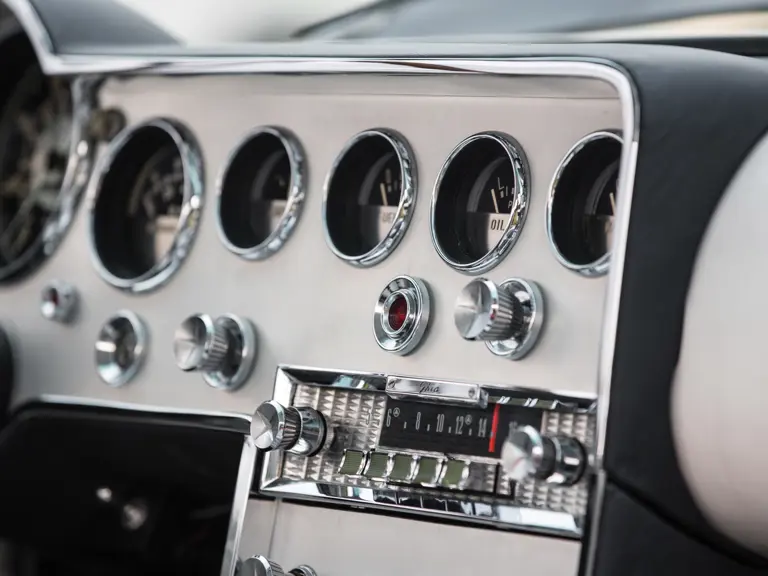
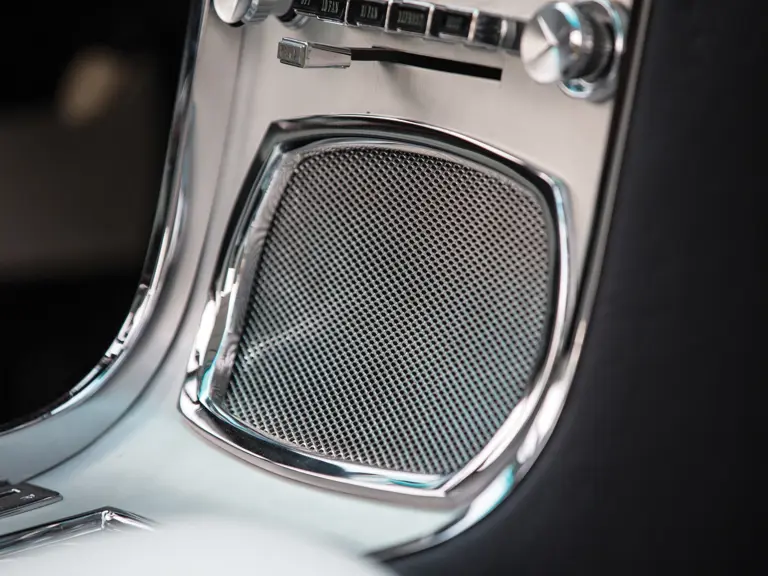
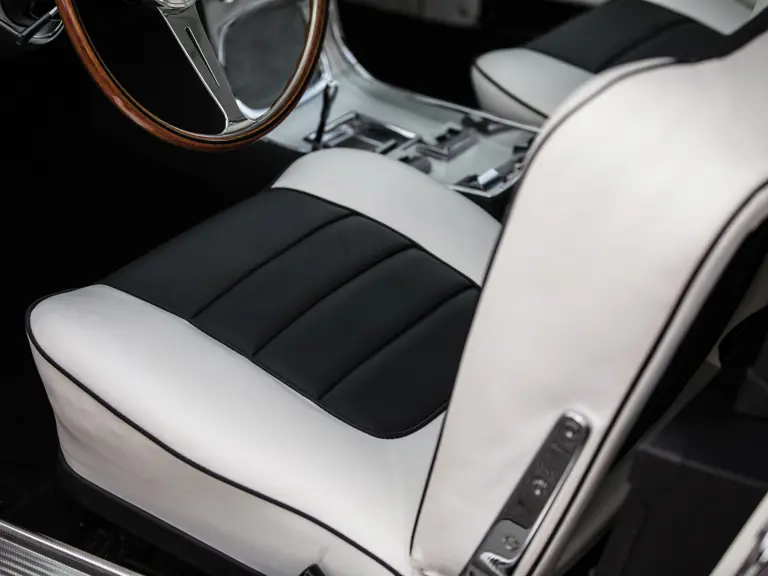
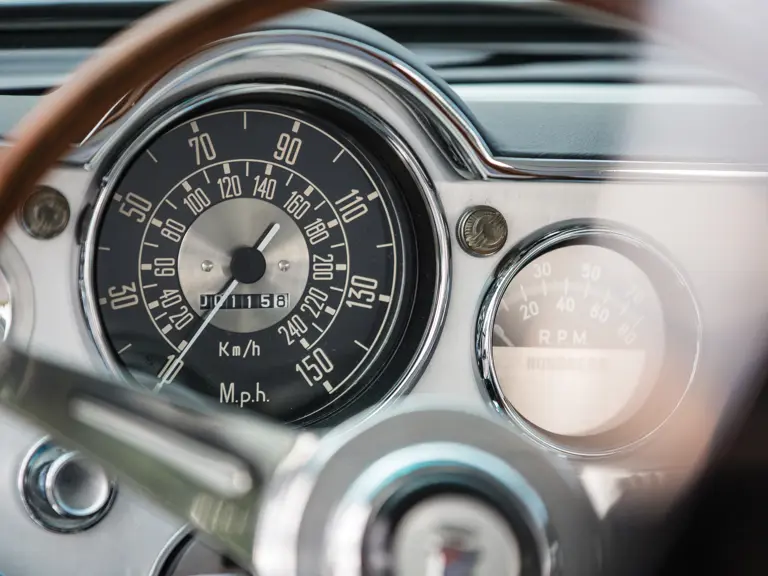
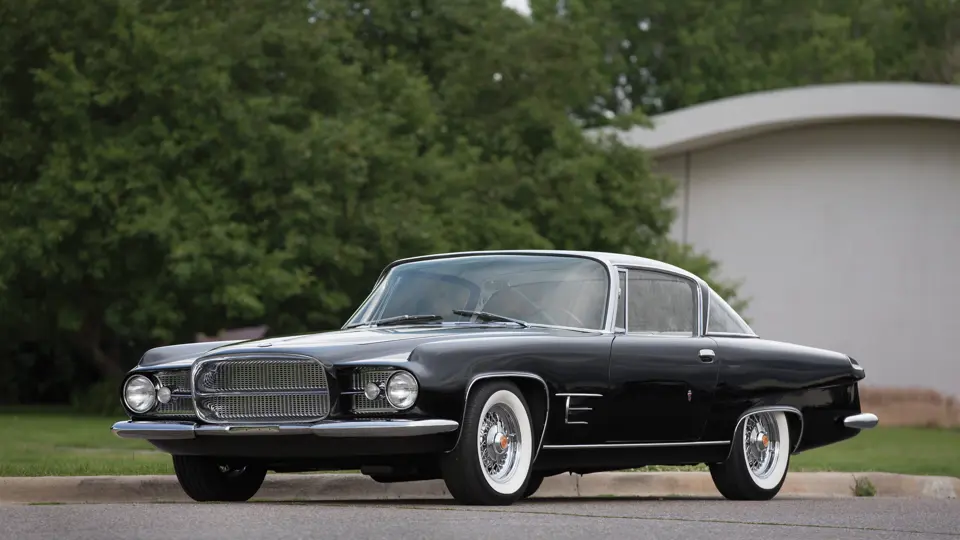
 | Phoenix, Arizona
| Phoenix, Arizona
